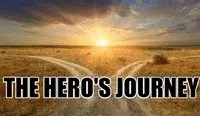
Why do people like fictional stories? Why do people like going to the movies, watching television and reading books? Escapism is a very easy answer to suggest and I do believe escapist imagination has a lot to do with it. But I believe there's something deeper at play here. It's the basis of the reason why writing has always been a passion of mine. I'm going to tell you what that means in a second. Why do people like fictional stories? Why do people like going to the movies, watching television and reading books? Escapism is a very easy answer to suggest and I do believe escapist imagination has a lot to do with it. But I believe there's something deeper at play here. It's the basis of the reason why writing has always been a passion of mine. I'm going to tell you what that means in a second.
When people read works of fiction, what's really happening is they are opening their minds to you – the author – by giving you the freedom to place them on a journey where they are willing to suspend disbelief and be taken on an emotional ride from beginning to end.
When it comes to humanity, storytelling has been around for millennia. There is something emotionally rewarding about seeing characters that don't actually exist be put through the wringer and thrown in front of obstacles that they are forced to overcome if they want to survive. Why? Because for the most part, most of us live very ordinary lives. We wake up, go to work, take care of our kids, go to sleep and get up in the morning to do it all over again. People do this for decades straight and it's been this way for thousands of years. Now, some people actually like the jobs they do, so for them, work-life isn't as much of a drag as I'm making it out to be. But I think this is the origin of story-telling. I can imagine farmers in long-dead civilizations working the land for hours and hours and at the end of the day, getting around a hot fire with food and family telling stories purely just to get their minds off of the tiring day. Because they didn't have movies, TV, and video games back during the stone and bronze ages. So the storyteller, or Grio as they were called in African societies, was really Man's first form of entertainment. I mean, they served multiple purposes, but the ultimate goal was to tell a story. Some storytellers did this so effectively that the people they told their stories to actually believed what they were hearing was true. These stories had such an impact, that people shared them and spread them across civilizations and cultures.
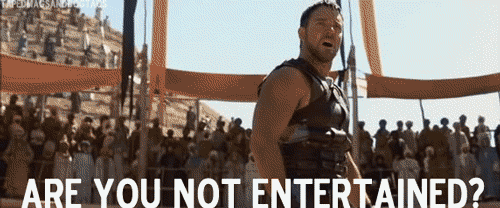
This is what has motivated me to start this new series on D-Tube and this is what I was referring to at the beginning of the video about something deeper at play. I will break down one of the most powerful structures of storytelling called The Hero's Journey and what I say is based on a book called The Writer's Journey written by a Hollywood insider named Christopher Vogler. Because what I've discovered is that there is a certain pattern or ryhthm that makes story-telling even more rewarding than usual. What I've realized is that it's not enough to just tell a story, but you have to tell a good story and that's increasingly difficult to do when so many people have realized that there is power in storytelling – it's the original art of influence. So a lot of people do it now which means there are a lot of overlapping ideas and concepts, some of which are used so often that they've become something people call tropes – which are just cliche's within a particular genre.
But The Hero's Journey has certain inherent concepts – or tropes – itself that can be found in films and books across nearly all genres of fiction. You will find elements of the Hero's Journey in action/adventure (that's really where the structure began), science fiction and fantasy, even romantic comedies and buddy cop films. It's literally everywhere. Why? Because it has a certain type of staying power where the structure has become so popular and successful that many people use it. This is because The Hero's Journey is a certain type of mythic structure. Meaning it's a way to tell a special type of story that been retold and refashioned for thousands of years across dozens of cultures. It was developed by Joseph Campbell in 1949 when he released his seminal work The Hero With A Thousand Faces. His book directly influenced George Lucas, the creator of the Star Wars franchise as well as many other stories over the decades.
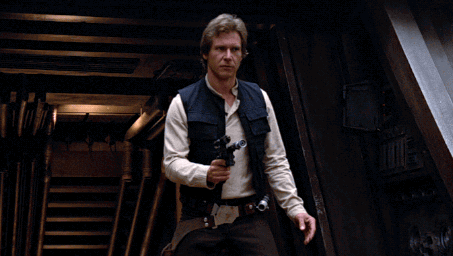
Now, there are many different ways of analyzing myths and the definition of myth itself is not as simple as one might imagine. This series isn't about tackling each and every one, just The Hero's Journey which has had the greatest modern impact and incorporates concepts from myths that go as far back as the Epic of Gilgamesh.
The Epic of Gilgamesh is a series of poems that were written in Ancient Sumeria beginning over 4,000 years ago, but span 2,000 years of popular use. Tablets with various stories of the epic have been found in ancient Babylonia and ancient Akkadia. It is considered the oldest surviving story in written form, but obviously, storytelling predates this. The Epic of Gilgamesh is a mythic adventure about Gilgamesh, who is an oppressive King and Enkidu who becomes his ally and eventually dies, but not before turning Gilgamesh into a better leader and a wiser man. The first Thor film in Marvel's MCU is reminiscent of the story of Gilgamesh. After Enkidu dies, Gilgamesh travels to the Underworld to try to save him and he fails realizing that he is only human...it's a pretty interesting story. I'm not going to go into the entire story here because that's a video in and of itself. But the Epic of Gilgamesh has every step of The Hero's Journey and shows how far back Campbell went to construct this framework.
The entire concept of heroes is arguable though. Not all cultures around the world have the same concept of heroes and some openly challenge the notion. This is why the figure of the Anti-Hero has often been very appealing from a story-telling perspective for a long time. Some people within societies take a dispassionate and bleak outlook on the idea of heroes as a whole given it feels at times as if the real world itself is lacking in heroes.
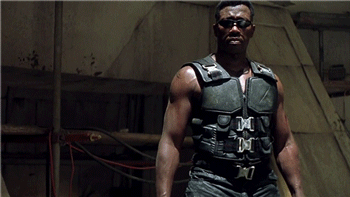
Understand this though, when used properly, The Hero's Journey can still be a powerful structure for writers of fiction to build your worlds with. It's a tried and true method that is not going anywhere and continues to be the source of popular books and movies – everything from The Matrix to Wonder Woman and Disney's Marvel Cinematic Universe has used it. Over the course of this series, I will be breaking down the archetypes of this journey and the journey itself. Remember, don't be afraid to mix things up. The Trickster and Shapeshifter archetypes don't always have to be bad, Mentor's don't always have to be good, and Allies shouldn't always turn into Deus ex Machina's to save your character from a situation you have him or her in...nor do they always have to live.
In his book, Vogler says that a strict, heavy-handed regurgitation of The Hero's Journey can be stale and cliché. Often times, the best films are the ones that employ this structure the best. One of my favorite films of all time, Gladiator starring Russell Crowe, is a damn near literal retelling of The Hero's Journey. Quick side note, I might have to do a breakdown of that movie one day because it really is really good. But you will find that films that generally aren't well received either don't have the Hero's Journey at all...or they fail at doing a good job of using the structure. Like I said though, this is NOT the only way to tell a story...it's just one that works consistently...but other systems work too.
I am in the process of writing several fictional tales myself that are currently on Steemit. I'm using The Hero's Journey in both, but I consider myself still a student of this structure as I am not a published author – that is a dream of mine that I want to fulfill one day soon. Steemit is easily the best option for aspiring and even seasoned writers on the internet and the perfect medium to share stories that matter to people. Forget Patreon, forget message boards and story boards, Steemit has become my main platform to share my stories and hopefully, over the course of this series, I will be able to inspire other people to share their stories as well.
So, now that I've roughly defined what The Hero's Journey is before I end this video, I want to talk about what a hero is exactly. Quick side note, for the purposes of this series, I'm going to often times use the masculine word hero, but I also am applying these same principles to women, or heroines, as well. Because this structure is gender neutral as we've seen in many recent films and books that have women as the main protagonists. But again, what is a hero really? To me, a hero is nothing more than a character that is forced out of his or her comfortable surroundings and put into situations in unfamiliar spaces that they must overcome to survive. There is something that threatens the Hero internally or externally that he or she must get rid of to prevent some sort of calamity from happening (and the best stories contain both). Most heroes are fighting something, it doesn't always have to be evil incarnate, it can be something subtle or more localized. The Hero could be struggling against an internal demon like addiction or regret for instance – there are all kinds of directions you can go in, so don't think you always go for the most outlandish obstacle you can dream of. Let your Heroes grow and develop before taking on a global threat or else you risk losing immersion and trust from your audience because they're seeing the Hero complete tasks that you, the author, haven't shown the Hero as being able to overcome yet.
At the beginning of every story, the hero is incomplete and not whole. There is something missing from his or her life whether or not this is known by the character. Usually, there's an underlying theme at the heart of the story that pulls at the hero on an emotional level to act and through action – the hero will be changed because of it. There are dozens and dozens of different themes one can work with, but you have to ask yourself what type of story are you trying to tell? What is the moral – or point – of the adventure? What knowledge or insight is there to be gained? Because the theme you decide to run with will serve as the ideological blueprint of sorts for the journey the hero will go on. You don't have to feel burdened by the theme though, and you can incorporate multiple themes, especially if you have at least one sub-plot. But I'd advise against having too many themes because you don't want to send mixed messages and confuse the viewers or readers.
Themes can be simple and broad such as change and courage, or they can be complex and focused such as Individual vs. Society or Chaos and Order. Choosing the theme can go a long way in crafting a narrative that is original and unique despite using a common writing structure like The Hero's Journey because themes come with different flavors and some themes aren't used as often as others. This is why The Hero's Journey can be recycled over and over again across genres and most people won't pick up on it.
In the next video, I'm going to delve deeper into the role of the Hero and the numerous ways heroes have been depicted. I want to do this before moving on to the archetypes and the journey itself. Also be on the look out for the next parts of my two ongoing sci-fi stories called Farima and The Gladiators of Thothen V.
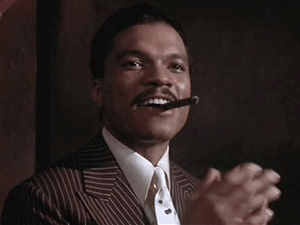
▶️ DTube
▶️ IPFS